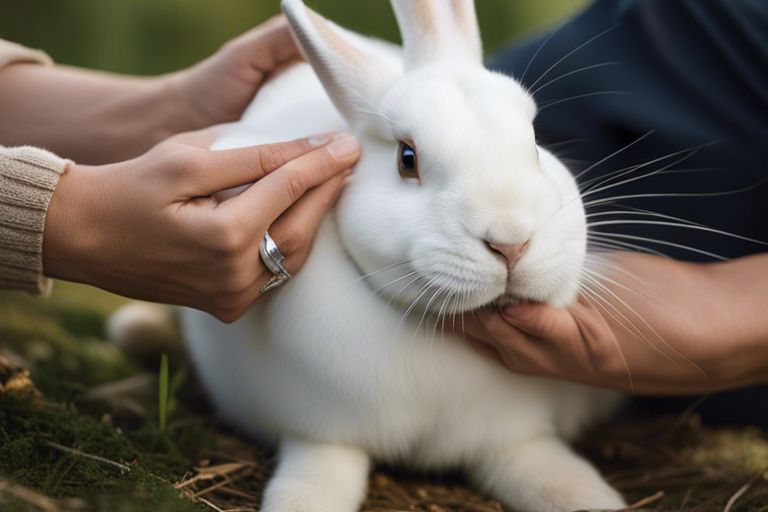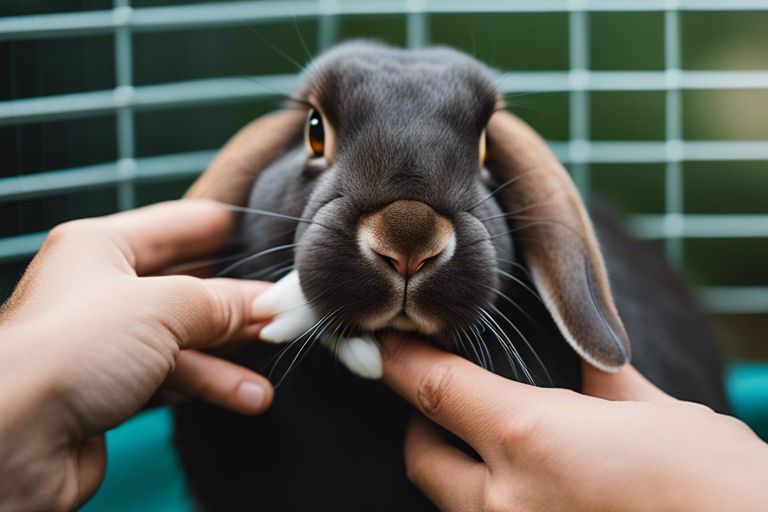Have you ever wondered if your beloved Flemish Giant enjoys being petted or groomed? These gentle giants are known for their friendly and sociable nature, but it’s important to understand their preferences when it comes to physical interaction. While Flemish Giants may enjoy the occasional petting or grooming session, it’s crucial to approach them with caution and respect their boundaries to ensure a positive experience for both you and your furry friend.
Key Takeaways:
- Flemish Giants may enjoy being petted and groomed: Many owners have reported that their Flemish Giants enjoy being petted and groomed, especially when they are handled gently and with care.
- Individual preferences may vary: Just like humans, each Flemish Giant may have its own individual preferences when it comes to being petted or groomed. Some may enjoy it, while others may not be as fond of the experience.
- Observing body language is important: It’s essential to pay attention to the body language of your Flemish Giant while petting or grooming it. Signs of enjoyment may include relaxed body posture, purring, and closeness to the person providing the attention.
- Proper handling is crucial: When petting or grooming a Flemish Giant, it’s important to use gentle and slow movements to avoid scaring or stressing the bunny. This will help to ensure a positive and enjoyable experience for both the rabbit and the owner.
- Building trust is key: By consistently providing positive experiences with petting and grooming, owners can help to build trust with their Flemish Giants and create a bond based on mutual enjoyment and comfort.
Flemish Giant Temperament and Socialization
If you’re considering a Flemish Giant rabbit as a pet, it’s important to understand their temperament and socialization needs. These gentle giants are known for their calm and laid-back demeanor, making them great companions for both individuals and families. They are generally sweet-tempered and enjoy being around people, but like all pets, they require proper socialization to thrive. To learn more about the Flemish Giant Rabbit, you can read What to Know About the Flemish Giant Rabbit.
Energy Levels and Playfulness
Flemish Giants are known for their low to moderate energy levels, which means they won’t require an excessive amount of exercise or playtime. They are generally more laid-back and enjoy lounging around, but they still benefit from mental and physical stimulation. Providing them with toys and activities can help keep them engaged and prevent boredom. When socialized properly, they can be quite playful and enjoy interacting with their owners.
Child and Pet Friendliness
One of the most appealing traits of Flemish Giants is their friendly and gentle nature. They are typically great with children, as they are tolerant and patient. However, it’s important to teach children how to handle and interact with them properly to ensure a positive experience for both the rabbit and the child. When it comes to other pets, Flemish Giants can coexist peacefully with other animals if introduced gradually and under supervision.

Grooming and Physical Care
One of the most crucial aspects of caring for your Flemish Giant is grooming and physical care. As a large breed rabbit, they require regular attention to maintain their well-being and health. This includes brushing, nail trimming, and monitoring their overall physical condition. Let’s dive into the specific aspects of grooming and physical care for these gentle giants.
Shedding and Coat Maintenance
When it comes to grooming your Flemish Giant, you need to be aware of their shedding and coat maintenance. These rabbits have a dense, soft coat that requires regular brushing to prevent matting and reduce shedding. By regularly grooming your rabbit, you can help them maintain a healthy and lustrous coat. Additionally, it’s essential to monitor their coat for any signs of parasites or skin issues, as these can lead to discomfort and health problems.
Size, Strength, and Handling Considerations
Given their substantial size and strength, handling a Flemish Giant requires special considerations. When grooming or providing physical care to these rabbits, it’s essential to be mindful of their size and strength. Proper handling techniques are crucial to ensure both you and your rabbit are safe during grooming and physical care. Additionally, regular handling can help your rabbit become more accustomed to grooming, making the process smoother and less stressful for both of you.
By taking the time to understand and prioritize the grooming and physical care of your Flemish Giant, you are ensuring their overall well-being and happiness. Regular grooming not only helps maintain their coat and physical health, but it also provides an opportunity for bonding and connection with your furry companion. Remember, the key to successful grooming is consistency and patience. Are you ready to dedicate the time and effort to properly care for your Flemish Giant?
Health and Wellness
Despite their large size and seemingly sturdy appearance, Flemish Giants require regular attention to their health and wellness. By being proactive and attentive to their needs, you can ensure that your rabbit lives a happy and healthy life.
Diet and Nutrition
When it comes to the health of your Flemish Giant, their diet plays a crucial role. You should provide them with a diet that is high in fiber, such as hay, leafy greens, and vegetables. In addition, a limited amount of pellets can be included in their diet to ensure they receive the necessary nutrients. It’s important to monitor their food intake to prevent obesity, as excessive weight can lead to a range of health issues.
Regular Check-ups and Preventative Care
Regular check-ups with a veterinarian experienced in treating rabbits are essential for your Flemish Giant. You should schedule annual wellness exams to ensure that your rabbit is in good health. In addition, it’s important to keep up with their vaccinations and preventative care measures to protect them from common diseases and parasites. Maintaining their dental health is also vital, as dental problems can lead to serious health issues.
In order to keep your Flemish Giant happy and healthy, it’s important to be proactive in addressing their health and wellness needs. By ensuring they have a balanced diet and receive regular check-ups and preventative care, you can help them avoid common health issues and enjoy a long, fulfilling life. Additionally, keeping a close eye on their weight and dental health will contribute to their overall well-being. Remember, your rabbit’s health is in your hands, so make sure to prioritize their wellness.
Training and Enrichment
Lastly, training and enrichment play a crucial role in the well-being of your Flemish Giant. Training not only helps in creating a bond with your pet but also ensures their safety and your peace of mind. Enrichment activities keep them physically and mentally stimulated, preventing boredom and potential behavior issues.
Obedience Training Techniques
When it comes to obedience training for your Flemish Giant, consistency and patience are key. Teaching basic commands such as ‘sit,’ ‘stay,’ and ‘come’ is essential to ensure their safety and your control in various situations. Use positive reinforcement techniques such as treats and praise to encourage good behavior. Also, make sure to use clear, concise commands and be patient as these gentle giants may take a little longer to learn and respond.
Positive Reinforcement and Alternative Training Methods
For Flemish Giants, positive reinforcement techniques work best in obedience training. Using rewards such as treats and praise for good behavior helps in shaping their actions. However, remember that every rabbit is unique, and what works for one may not work for another. Be open to alternative training methods such as clicker training or target training, and always tailor your approach to your rabbit’s individual personality and needs.
The key to a successful training and enrichment program for your Flemish Giant is to find out what works best for them. Consistency, patience, and understanding are vital in creating a balanced and well-behaved pet. Are you ready to invest the time and effort needed to ensure your Flemish Giant is both mentally and physically stimulated? By incorporating training and enrichment into your pet care routine, you can build a stronger bond with your rabbit and provide them with the mental and physical stimulation they need to thrive.
Conclusion
To wrap up, it is important to remember that every Flemish Giant rabbit is an individual with its own preferences and personality. While some may enjoy being petted and groomed, others may not. It is crucial to observe your rabbit’s body language and cues to determine if they are comfortable with being handled. Always approach them with caution and respect their boundaries. By being attentive and patient, you can build a trusting and positive relationship with your Flemish Giant.
FAQ
Q: Do Flemish Giants enjoy being petted or groomed?
A: Yes, Flemish Giants typically enjoy being petted and groomed. They are known for their gentle and affectionate nature, and often crave attention from their owners. However, it is important to approach them calmly and gently to ensure they feel comfortable and relaxed during petting and grooming sessions. Always be mindful of their body language and signs of discomfort.
Q: How should I pet or groom my Flemish Giant?
A: When petting or grooming your Flemish Giant, it’s important to approach them with a calm and gentle demeanor. Use slow, smooth strokes and avoid making sudden movements that could startle them. Pay attention to their body language – if they seem agitated or uneasy, it’s best to give them space. When grooming, ensure that you use the appropriate brushes or tools for their fur type to avoid causing any discomfort.
Q: Are there specific areas I should focus on when petting or grooming my Flemish Giant?
A: While petting your Flemish Giant, focus on areas they particularly enjoy being touched, such as their head, ears, and back. Avoid touching their feet or tail if they show signs of being uncomfortable with it. When grooming, pay special attention to their dense fur, especially during molting season. Gently brush their coat to prevent matting and remove loose fur to maintain their overall health and well-being.
